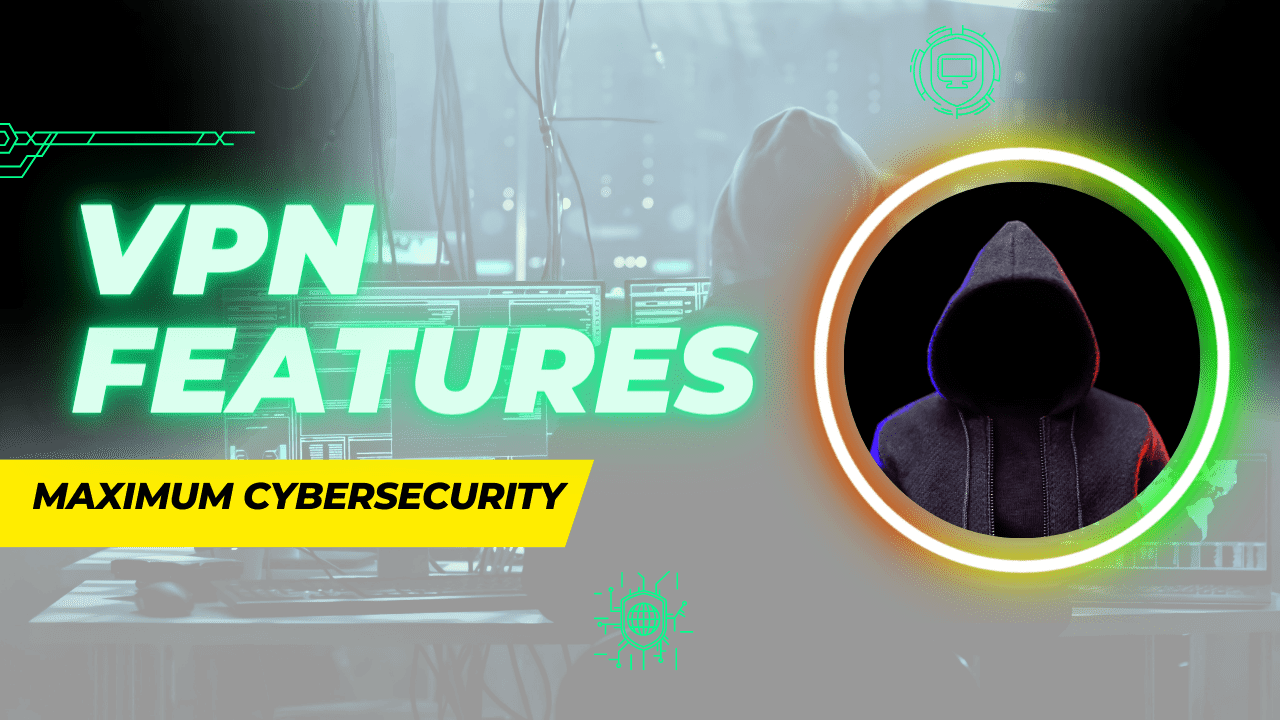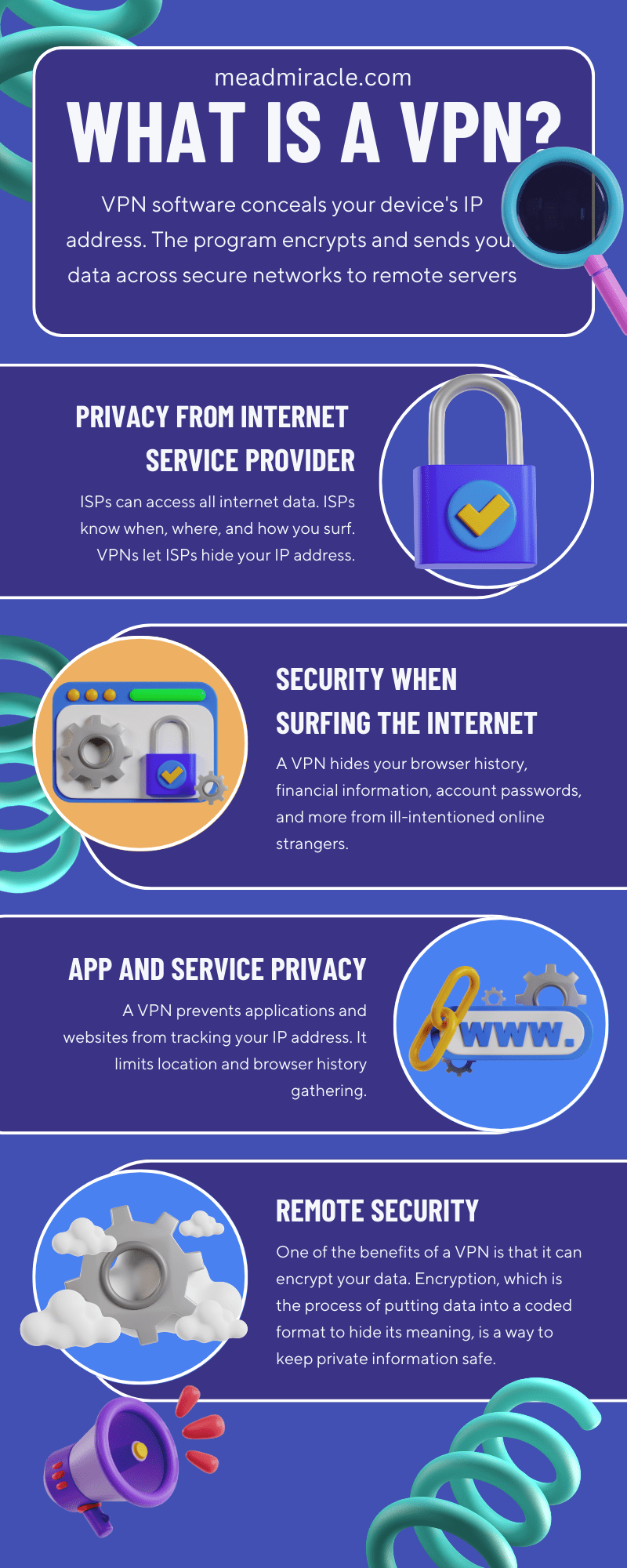
Virtual Private Networks (VPNs) are a crucial tool for enhancing cybersecurity, privacy, and anonymity while browsing the internet. VPNs provide a secure and encrypted connection between a user’s device and the internet, protecting their data and online activity from prying eyes. However, not all VPNs are created equal, and some offer better security features than others. In this article, we will explore the top VPN features that you should look for to ensure maximum cybersecurity when using a VPN. These features include encryption protocols, kill switches, DNS leak protection, a no-logs policy, and multi-platform compatibility.

Comparison of Strong Encryption Protocols offered by TunnelBear and NordVPN
Certainly! Both TunnelBear and NordVPN are reputable VPN providers that offer strong encryption protocols to ensure maximum cyber security.
TunnelBear uses AES-256 encryption, which is considered to be one of the strongest encryption protocols available. It also offers protocols such as OpenVPN, IKEv2, and IPSec to provide users with a variety of options for balancing speed and security.
Similarly, NordVPN uses AES-256 encryption and also offers a range of protocols, including OpenVPN, IKEv2/IPSec, and NordLynx (a proprietary protocol based on WireGuard). NordVPN also offers additional features such as Double VPN, which encrypts your traffic twice, and Onion over VPN, which routes your traffic through the Tor network for even greater privacy and anonymity.
Overall, both TunnelBear and NordVPN offer strong encryption protocols to ensure that your data remains secure and private while browsing the internet. When choosing a VPN, it’s important to look for providers that offer robust encryption protocols to ensure maximum cyber security.
What is the Top 5 Best VPNs?
There are many VPN services available, but here are the top five based on their features, security, and reliability:
- ExpressVPN – is known for its fast speeds and excellent security features, including a kill switch and 256-bit encryption.
- NordVPN – offers top-notch security and privacy features, including double encryption and a strict no-logs policy.
- CyberGhost – is user-friendly and offers great privacy features, including a strict no-logs policy and 256-bit encryption.
- Surfshark – is affordable and provides unlimited simultaneous connections, plus great security features like multi-hop VPN and ad-blocking.
- Private Internet Access (PIA) – offers a fast and reliable service, with strong encryption and a strict no-logs policy.
It’s important to note that the best VPN for you may vary based on your specific needs, such as budget, location, and the level of security you require. Before selecting a VPN, it’s always a good idea to conduct your own research and read reviews.
Kill Switch
Certainly! Here’s some key information about kill switches and why they are important for VPNs:
- A kill switch is a VPN feature that automatically disconnects a user’s internet connection if the VPN connection is lost. This prevents any sensitive data from being transmitted over an unsecured network.
- Kill switches are particularly important for users who rely on VPNs for privacy and security, such as those who regularly use public Wi-Fi networks. These networks are often unsecured and can be easily compromised, leaving users’ sensitive data vulnerable.
- There are two types of kill switches: system-level and application-level. System-level kill switches are more effective as they disconnect the entire internet connection, while application-level kill switches only disconnect specific applications.
- Some VPNs offer both types of kill switches, giving users more control over their internet connection and ensuring maximum security.
- It’s important to choose a VPN that offers a kill switch feature to protect your online privacy and prevent your data from being compromised in the event of a VPN connection failure.
DNS Leak Protection
DNS leak protection is another important feature to consider when choosing a VPN. DNS (Domain Name System) is responsible for translating human-readable website names into IP addresses that computers can understand. When a user connects to a VPN, all their DNS requests should be sent through the VPN server to prevent their internet service provider (ISP) or other third parties from tracking their online activity.
However, in some cases, a user’s DNS requests may leak through the VPN, revealing their online activity to their ISP or other third parties. This is known as a DNS leak. To prevent DNS leaks, VPNs offer DNS leak protection, which ensures that all DNS requests are routed through the VPN server and encrypted.
DNS leak protection is particularly important for users who want to keep their online activity private and secure. It prevents ISPs, government agencies, or hackers from tracking their online activity or censoring their access to certain websites. When choosing a VPN, it’s important to ensure that it offers DNS leak protection to protect your online privacy and security.
No-Logs Policy
A no-logs policy is another important feature to consider when choosing a VPN. A no-logs policy means that the VPN provider does not collect or store any information about their users’ online activity. This includes information about the websites they visit, the files they download, and their IP address.
A no-logs policy is important because it ensures that your online activity remains private and cannot be used against you. It also prevents your data from being sold to third-party advertisers or government agencies.
It’s important to note that not all VPN providers have a strict no-logs policy. Some providers may collect certain types of data, such as connection logs or session cookies, which can be used to track your online activity. Therefore, it’s important to choose a VPN provider that has a clear and strict no-logs policy to ensure maximum privacy and security.
Multi-Platform Compatibility
Multi-platform compatibility is another important feature to consider when choosing a VPN. Multi-platform compatibility refers to the ability of a VPN to work on a variety of different devices and operating systems, such as Windows, Mac, Android, iOS, and Linux.
Having a VPN that is compatible with multiple platforms is important. It allows you to protect all of your devices with a single VPN account. This can save you money and make it easier to manage your VPN connection across multiple devices.
Furthermore, having a VPN that is compatible with different platforms can also be useful if you travel frequently or work remotely. You may need to connect to a VPN on your laptop, tablet, or smartphone, depending on your location and the devices.
Conclusion
In conclusion, there are several important features to consider when choosing a VPN for maximum cybersecurity. Strong encryption protocols are a must-have, as they ensure that your data remains secure and private while browsing the internet.
DNS leak protection ensures that your online activity remains private and prevents third parties from tracking your internet activity. Additionally, a strict no-logs policy ensures that your data is not collected or stored by the VPN provider. Protecting your online privacy and security.